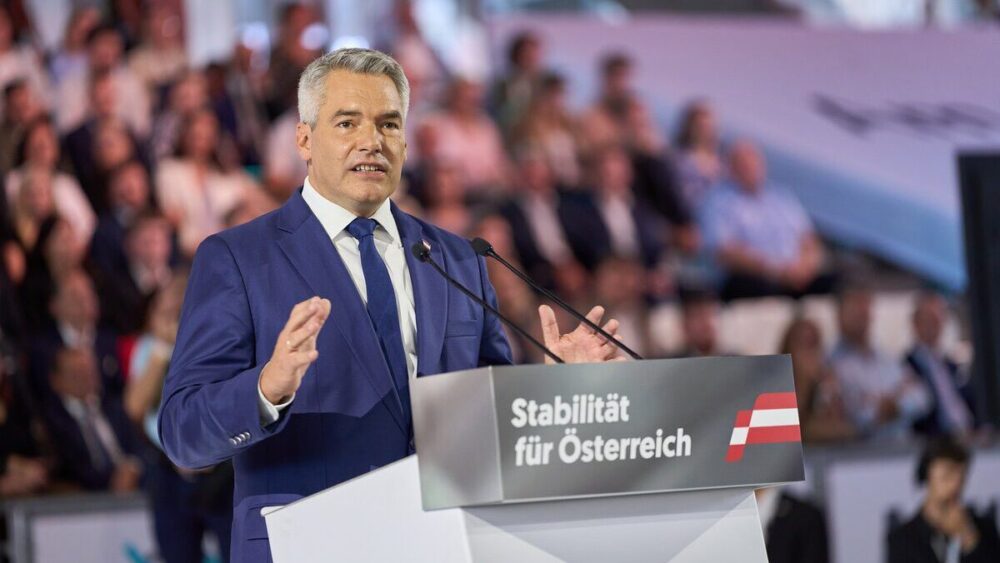
Karl Nehammer
The right-wing, anti-immigration Freedom Party of Austria (FPÖ) may well win the national elections scheduled for September 29th but, it may not matter whether they finish in first place or not, because the new government of Austria has already been agreed upon, according to Exxpress: it will be the grand coalition of old between the centre-right People’s Party (ÖVP) and the Social Democrats (SPÖ).
As we recently reported, the FPÖ is on course to win the elections, with migration being one of the biggest concerns for voters in the country. According to a survey published in July, 40% of respondents named migration as their top issue of concern, followed by environmental concerns (20%) and education (12%).
Despite the number of asylum seekers drastically increasing from 112,000 in 2022 to 59,000 last year, voters want the future government to address the issue of migration, including introducing stricter rules for those entitled to asylum.
Both the governing ÖVP and the opposition FPÖ have vowed to curb the influx of migrants and introduce tougher measures to deter asylum seekers from entering Austria. The latter has promised to suspend asylum applications, reject illegal immigrants at the border, and generally make Austria a less attractive destination country for migrants.
FPÖ has been riding high in the polls, and is projected to win 28% of the votes on September 29th. The People’s Party is polling at 24% and the opposition Social Democrats are at 20%.
Despite a clear desire for a shift to the right (the ÖVP is currently in a coalition with the Greens), it seems more likely that Austria will have to endure a shift to the left. Just like in Germany, where the anti-immigration AfD party is being barred by the mainstream parties from entering government, the FPÖ is being shunned.
The People’s Party has made it evident during its campaign that it doesn’t wish to restart a coalition with the FPÖ (2017-19). The campaign’s motto is “Die starke Mitte” (The strong middle), which says everything about where ÖVP positions itself on the political spectrum.
The other parties have even less in common with the Freedom Party, with SPÖ leader Andreas Babler calling FPÖ a “danger to democracy.” As Exxpress writes, talks between the ÖVP and the Social Democrats have been going on for a year about re-forming the so-called grand coalition of the two parties—a format that dominated Austrian politics for many decades.
Chancellor Karl Nehammer would rather collaborate with the Social Democrats, even with their leader, Andreas Babler espousing left-wing policies such as taxing the rich, introducing a 32-hour working week, and the state-controlled restructuring of the economy.
As the two likely won’t have enough mandates for a majority in parliament, they will have to rely on either the Greens or the liberal NEOS party for additional support—which means a shift to the left is inevitable. “To exclude the possible election winner [FPÖ] three weeks before the election is not a sign that ÖVP and SPÖ understand how democracy works,” Exxpress concludes.
